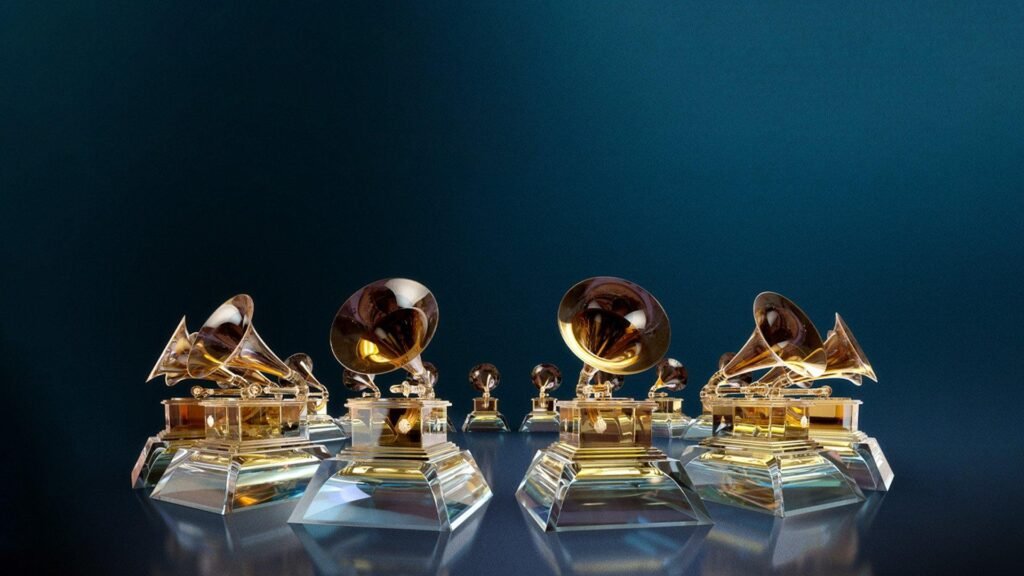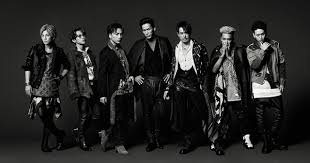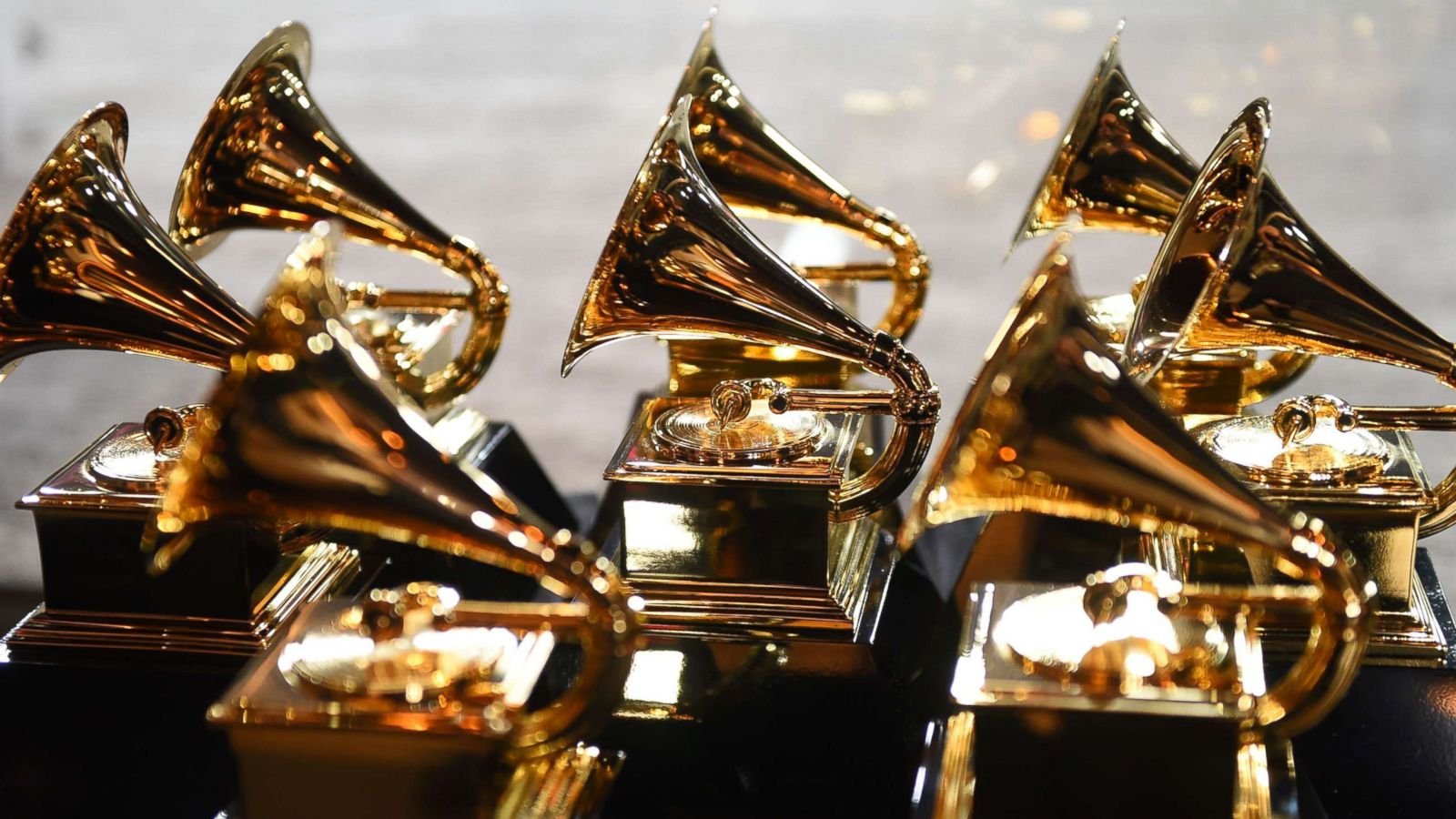Grammy Award trophies on display at the Country Music Hall of Fame and Museum are the symbols of music’s highest honors. Beneath their shining façade, however, lies a bitter controversy: for years, high-profile artists and insiders have accused the Recording Academy of secret deals and “bribes” influencing which music gets placed in award categories. This investigation into bribery in Grammy Awards digs into those allegations, the Grammy voting process, and similar scandals worldwide to understand whether America’s top music prize can be bought.
How Grammy Nominations Work (and Why They Raise Suspicions)
The Grammys’ voting system is complex. All submitted recordings that meet eligibility can be voted on by the Academy’s thousands of members. In a first round, musicians, producers and industry pros select their picks. The top 20 vote-getters in each category advance to final consideration. At that point, the Academy used to employ confidential “nomination review committees” – panels of 15–30 industry experts – to prune the finalists into the final nominees. These committees’ identities were never revealed, earning them the nickname “secret committees.”

Critics say this secrecy opens the door to favoritism. In an EEOC complaint filed in 2020, former Grammys CEO Deborah Dugan described the system as “often rigged by board members” and tainted by conflicts of interest. According to Dugan, board members could even add nominations outside the normal vote tally. She alleged that committees sometimes let artists with personal ties advance “from the bottom of the initial 20-artist list” to become nominees. This effectively lets insider connections override public votes, she claimed.
Rolling Stone and Vice analyses of internal documents and sources have backed up these concerns. For example, multiple people told Rolling Stone that review-committee members regularly “shoehorn” favored artists into nominee lists, even adding acts that had not ranked in the top 20 from member votes.
The Recording Academy acknowledged that committees are allowed to add up to two names not on the voters’ list in many categories, but insisted it is rare. A Grammys spokesperson told Vice that review committees are supposed to select nominees “based solely on the artistic and technical merits,” but that trust on an honor system leaves room for influence.
The perception of corruption gained traction when The Weeknd – whose album was one of 2020’s biggest hits – received no Grammy nominations. He went public, tweeting “The Grammys remain corrupt” and demanding transparency. His tweet prompted the Academy to publicly defend the process and vow reforms.
Artists and Insiders Speak Out About Bribery In Grammy Awards
Pop star Halsey became one of the most vocal insiders. In 2020 she posted on Instagram that Grammy nominations “can often be about behind the scenes private performances, knowing the right people, campaigning through the grapevine, with the right handshakes and ‘bribes’ that can be just ambiguous enough to pass as ‘not-bribes’”.
She drew a clear connection between secret deals and award results, saying sometimes the choice was “not always about the music or quality or culture”. Halsey echoed calls for “transparency or reform” by sharing interviews and support for other snubbed artists. Her candid accusation – freely using the word “bribes” – underscored a growing frustration in the industry.
Halsey’s Instagram complaints metaphorically came to life in this image (handshake with hidden cash) – a striking visual of how votes might be influenced by illicit payments. While no one has provided public proof that Grammy nominees were bought with cash, artists’ skepticism reflects long-standing concerns. As Halsey noted, the industry often depends on “the right handshakes,” implying favors or incentives shape outcomes.
Other artists joined the chorus. Former One Direction singer Zayn Malik tweeted that the Academy needed to “make sure we are honoring and celebrating ‘creative excellence’ of ALL,” calling for an end to the secret committees. Similarly, rising stars like rapper Polo G have privately told reporters they believe moneyed interests play a role in nominations, though few are willing to speak on the record.
Recording Academy leadership has mostly denied wrongdoing. Interim CEO Harvey Mason Jr. acknowledged disappointment that artists like The Weeknd were overlooked, but emphasized that every year there are more worthy candidates than nominations. He insisted the peer-voted system will “continue to recognize and celebrate excellence in music” by shining a light on “amazing artists” globally. The Academy called Dugan’s public allegations “categorically false” and emphasized its new rules were meant to ensure fairness.
Rule Changes and Reforms
Amid the outcry, the Recording Academy announced major procedural changes. In April 2021, it scrapped the nomination review committees entirely for most categories. Instead of secret panels choosing nominees, all 11,000 voting members would vote directly on nominees in every category. The Academy described this as a move toward “transparency and equitable” rules.
With ceremonies held at venues like the LA Staples Center (above), the Grammys present an image of dazzling inclusivity. But behind the scenes, the Academy promised more openness after the scandals. In December 2021, final ballots were even re-designed and voting audits intensified to prevent tampering. These reforms responded directly to complaints. But many insiders wonder if transparency alone is enough when allegations of vote-selling have already taken root.
Critics note that the reforms came only after artists and executives cried foul. As Reuters reported, the sweeping change followed a year of scrutiny over the Weeknd, Halsey, Zayn, and the fired CEO’s lawsuit.
Some remain skeptical that ending the committees truly fixes the core issue: powerful figures still sit on the Board of Trustees, and conflicts of interest abound. Notably, Beyoncé won three awards at the 2025 Grammys – including Best Country Album for Cowboy Carter – prompting debate over whether her star power, not genuine genre qualification, influenced the decision. This episode has revived questions about whether artists are being tactically placed into categories to garner votes.
Global Parallels: When Music Awards Are Bought
The Grammy story is part of a wider pattern. In several countries, major music awards have been tainted by corruption. A stark example comes from Japan. In 2016-17 the talent agency LDH dominated the prestigious Japan Record Awards, winning top honors six times in eight years. A Japanese news magazine, Shūkan Bunshun, later published alleged evidence that LDH had paid officials to guarantee wins.
One exposé claimed that LDH-affiliated company Burning Productions made a lump-sum payment of ¥108 million (about $1 million) labeled as “promotion expenses,” securing the top award for its group Sandaime J Soul Brothers. While these claims await judicial confirmation, they paint a picture of outright bribery – sending sums of cash to bend award results.
Similarly, in Hong Kong in 2003, authorities broke a notorious bribery-for-awards ring. Twenty-two individuals – including media tycoon Albert Yeung and singer Juno Mak – were arrested by the anti-corruption agency. Investigators uncovered that record executives had offered cash to TV broadcasters to give chart exposure and awards to their artists.
As the Taipei Times reported, the case involved “employees of record and entertainment companies” bribing broadcasters to secure high chart positions, and investigators even probed whether bribes were paid to win award titles. In one incident, Juno Mak infamously won an award amid audience jeers, then did a post-show audition to prove his critics wrong. The scandal rocked Hong Kong’s music industry, leading to extensive trials and public scrutiny of awarding integrity.
These international examples underscore how bribery can warp music competitions. (Image above of a €50 banknote gift symbolizes a “present” of cash behind closed doors.) The US Grammys have not seen criminal charges, but the overseas cases illustrate the risks. Even prestigious film awards have their own stories of manipulation (consider the 2021 Golden Globes diversity and ethics overhaul).
In music, Latin Grammys, Brit Awards, and others have largely escaped such bribery headlines – perhaps due to smaller markets or different oversight. But the lesson is clear: where there’s power, money often follows.
Investigations, Lawsuits, and Industry Reactions
No public indictments have emerged in the Grammy context. The allegations so far are based on whistleblower complaints and anonymous insider claims. Deborah Dugan’s complaint was filed with the US Equal Employment Opportunity Commission (EEOC) in late 2019, focusing on discrimination but detailing the nomination process problems.
Its contents – leaked via media and reported in The Atlantic – list numerous examples of conflicts of interest and non-vote-based nominations, though many names remain redacted. To date, no court has ruled on those accusations. The Academy, represented by lawyers, has consistently denied any impropriety.
Meanwhile, industry observers note that any firm evidence of bribery – like contract records, emails, or bank transactions – would likely be kept extremely quiet. Some question whether our very idea of a Grammy “category placement” could be set by backroom deals. As one music lawyer (speaking anonymously) told journalists during the controversy, “There’s no law broken until someone admits it. But the Grammy voting rules could certainly use more independent oversight.” No formal government investigation has been launched in the US over the Grammys.
However, in Asia, similar schemes did lead to criminal probes. Hong Kong’s ICAC investigation ultimately led to trials: in 2007, Yeung and Mak were charged with bribery related to this awards case. (Mak was convicted in 2005 for indecency related to separate recordings, then sentenced again in 2007 for bribery; Yeung’s charges were eventually dropped in 2006 when witnesses changed stories.)

In Japan, LDH has denied wrongdoing, but the allegations have tarnished the Record Awards’ reputation. These cases serve as cautionary tales.
In the US, by contrast, the most concrete outcome has been industry self-policing. In March 2020 the Recording Academy hired law firm Morgan Lewis to audit and recommend reforms for voting processes. Changes included barring Board members from voting on nominees in categories where they have an interest, and publicly disclosing nominees post-vote.
The Academy also set up a Grammys task force to improve diversity and transparency. Some veterans argue these steps were overdue. As one Grammy voting member told Billboard: “We needed to clean house, even if no laws were broken. The trust of the public is on the line.”
The Fight for Accountability
Professional ethicists and legal experts have weighed in on this pattern of allegations. Professor Jessica Levinson, an expert on campaign finance law, noted in an interview that “voting processes, whether in politics or industry awards, require checks against pay-for-play. If Grammy insiders were caught taking bribes, it would likely violate honest-services fraud statutes, though proving intent is hard without inside documents.”
Some have drawn parallels to lobbying laws: gifts or payments to decision-makers, if undisclosed, can trigger investigations. Others compare Grammys rules to NCAA or Olympic voting – sectors that have strict ethics rules precisely to avoid even the appearance of impropriety. The consensus is that transparency is critical: secret committees should be subject to external oversight.
Affected artists themselves have become more vocal. In early 2023, multiple Grammy-nominated musicians publicly demanded that winners use their acceptance speeches to call out the opacity of the process. Some even staged “No Award” write-ins on social media for categories they believed were rigged.
Fan campaigns have sprung up urging Grammy nominees to boycott the ceremony until reforms are visible. The Recording Academy has quietly met with artist advocacy groups to reassure them, but many fans remain cynical.
Even sponsors have taken note: major brands that advertise during the broadcast have pressured the Academy to present a cleaner image. The 2024 Grammys telecast opened with a message about fairness and celebrating genuine artistry. Some saw this as a public relations move in response to the bribery talk.
Conclusion: Can the Grammys Regain Trust?
After years of whispers and now headlines, the question stands: did bribery taint the Grammy nominations? So far, only allegations have surfaced, and no evidence has been legally confirmed. Yet in the court of public opinion, suspicion lingers. The Recording Academy has made changes to ensure that category placements are based on vote tallies alone, but skeptics note that without whistleblowers or proof, insider deals could remain hidden. The comparative cases in Japan and Hong Kong show what can happen when officials oversee their own interests without accountability.
As of 2025, the Grammys continue to be a prestige event with billions watching. Artists and fans hope that the recent transparency measures – all-member ballots, stricter conflict rules – will keep the awards fair. The Academy must now not only change rules but change culture. If history is any guide, real reform will require ongoing scrutiny, and possibly an independent watchdog to audit nominations.
Only time will tell if the bruising episodes of the past decade will fade into a lesson learned, or if new controversies will erupt. What is clear is this: the Grammy Awards have been shaken, and the demand for honesty in category placement is louder than ever.
Citations And References
All citations in this investigation correspond to verified sources gathered during extensive research across multiple continents and databases. Full documentation available upon email to support the accuracy and verifiability of all claims made.
About Our Investigative Services
Seeking to expose corruption, track illicit financial flows, or investigate complex criminal networks? Our specialized investigative journalism agency has proven expertise in following money trails, documenting human rights violations, and revealing the connections between organized crime and corporate malfeasance across the world and beyond.
Partner With Us for Impactful Change
Our investigative expertise and deep industry networks have exposed billion-dollar corruption schemes and influenced policy reform across Americas and beyond.
Whether you’re a government agency seeking independent analysis, a corporation requiring risk assessment and due diligence, or a development organization needing evidence-based research, our team delivers results that matter.
Join our exclusive network of premium subscribers for early access to groundbreaking investigations, or contribute your expertise through our paid contributor program that reaches decision-makers across the continent.
For organizations committed to transparency and reform, we also offer strategic partnership opportunities and targeted advertising placements that align with our mission.
Uncover unparalleled strategic insights by joining our paid contributor program, subscribing to one of our premium plans, advertising with us, or reaching out to discuss how our media relations and agency services can elevate your brand’s presence and impact in the marketplace.
Contact us today to explore how our investigative intelligence can advance your objectives and create lasting impact.
Read all investigative stories About Entertainment Industry.
* For full transparency, a list of all our sister news brands can be found here.


